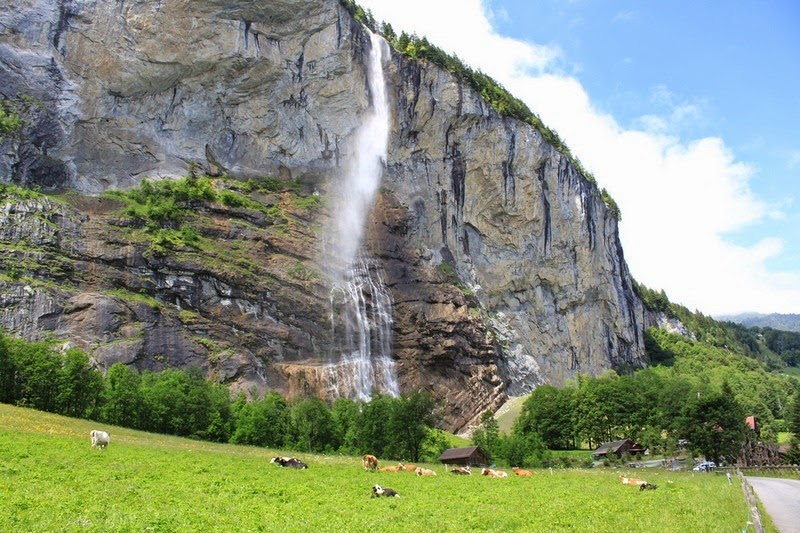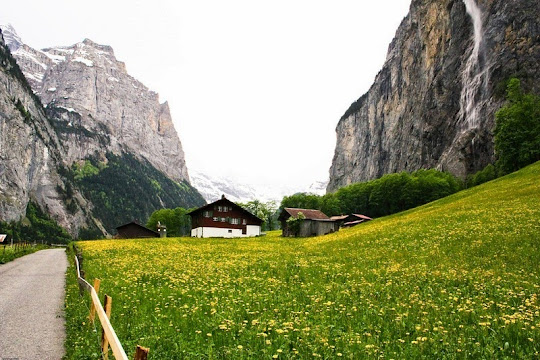Lauterbrunnen means “many springs”. The name is derived from the 72 waterfalls that gush down into the valley from the vertical cliff faces, some of which are several hundred meters high. The most famous of these are the Staubbach Falls that plunges almost 300 meters, making it one of the highest in Europe formed of a single unbroken fall.

Another spectacular natural phenomenon are the Trümmelbach Falls hidden behind a mountain, and consisting of a series of ten glacier-fed waterfalls that carries 20,000 litres of water per second. It drops a total of 200 meters. These thunderous falls have carved corkscrew-shaped gorges inside the limestone mountain. The waterfalls were invisible until 1877, when a tunnel was chiseled into the mountain. Today, you can ride an underground funicular and hike the walkways to see it. In winter, however, the falls are reduced to a trickle.
Lauterbrunnen’s dramatic cliffs and falls have inspired many musicians and writers, such as Johann Goethe’s poem, “Song of the Spirit of the Waterfalls,” which Franz Schubert set to music. J.R.R. Tolkien’s Misty Mountains of “The Hobbit” is also based on Lauterbrunnen.
Lauterbrunnen became a UNESCO World Natural Heritage Site in 2001.








Source
